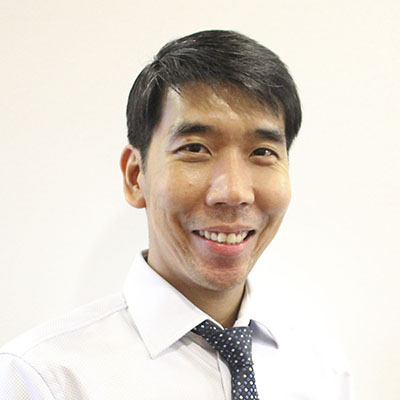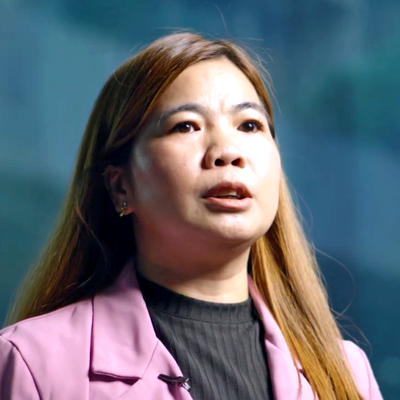
OVERVIEW
About This Programme

The MA Education extends and deepens your understanding of current theories, policies, and issues in the field through intensive study and research. You can tailor the course to your interests by selecting your topics, and work towards one of our specialist endorsements: Leadership; Teaching and Learning; Early Years; Inclusive Practice; or International Education.
This programme and its endorsements aim to provide practising and aspiring educationalists with a school of study that will enable learners to extend their professional knowledge and understanding and explore in depth new perspectives on education and their profession.
Ranked Top 7% Globally by Center for World University Rankings
Research Excellence Framework strong research quality across all subject areas
Guided career sessions
MODULES
Designed to explore beyond subject knowledge
The Critical Perspectives in Education, Global Perspectives on Education, Enquiry Skills in Educational Research, Leadership in Education, and Dissertation modules provide master’s students with a comprehensive foundation for advanced study and professional practice in education. Students critically examine the philosophical, sociological, and global influences shaping education while developing research expertise and leadership skills for modern educational settings.
The programme builds strong analytical and enquiry skills, enabling students to design and conduct independent research, evaluate contemporary educational practices, and reflect on the symbiotic relationship between education, individuals, and society. Graduates are equipped to contribute meaningfully to educational research, leadership, and policy both locally and internationally.
Critical Perspectives in Education
This module aims to provide a theoretical foundation for the study of education at master’s level. Postgraduate students of education should have a strong critical understanding of how sociological and philosophical thoughts and perspectives have shaped the evolution of education as a sector, profession, and discipline.
The students will gain an appreciation of how these disciplinary frameworks underpin their educational research. The module will focus on complementary and competing ideas about education and will build a critical context for evaluating present educational practices. This module also aims to enable students to comprehend the symbiotic relationship between education, the individual and society.
Global Perspectives on Education
This module allows students to develop an appreciation for the global aspects and impact of education. Students will be taught to engage in comparative study and research, examining the organisation of educational provision, pedagogical traditions, and policy and developments in education across the world. Students will then be called on to critically reflect upon these in light of their professional and/or personal experience, using comparative theoretical frameworks.
Enquiry Skills in Educational Research
This module aims to introduce students to the principles of research theory and practice in the field of education. It will develop their skills in the examination, evaluation, and critique of research evidence, and their ability to appraise the significance of the underpinning elements of research, such as: i) the nature and validity of knowledge (epistemology); ii) ontology; iii) qualitative and quantitative research paradigms; iv) the influence of disciplinary and inter-disciplinary frameworks; and, v) the ethical implications of research. On completion of the module the students will be equipped with tools necessary to design and implement their own research in the dissertation module.
Leadership in Education
This module aims to provide students with the knowledge, skills and analytical capability needed for advanced personal leadership and management practice in a modern education organisation.
Dissertation
The aim of this module is to develop the students: knowledge and skills in the exploration, examination, appraisal and critique of literature and research in education and allied disciplines. Ability to judge the significance of the underpinning elements of research, such as i) the nature and validity of knowledge (epistemology); ii) ontology; iii) the qualitative and quantitative research paradigms; and iv) the influence of disciplinary and inter-disciplinary frameworks. Ability to carry out a critical enquiry using appropriate methodology Awareness of ethical considerations and the potential of collaboration and reciprocation within research.
Full programme structure and learning outcomes
Get details and learn about the advantages of learning with LSBF.
what to expect
Advance Your Career in Business
Programme Aims
The MA Education extends and deepens your understanding of current theories, policies, and issues in the field through intensive study and research. You can tailor the course to your interests by selecting your topics, and work towards one of our specialist endorsements: Leadership; Teaching and Learning; Early Years; Inclusive Practice; or International Education.
Learning Outcomes
The MA Education and its endorsements aim to provide practising and aspiring educationalists with a programme of study that will enable them to extend their professional knowledge and understanding and explore in depth new perspectives on education and their profession.
The programme will enable students to:
- Focus on a particular subject area or field of study in greater depth than they encountered during previous study or experience,
- Develop knowledge of a new discipline or field of study in combination with a relevant subject area in which they have prior knowledge or experience,
- Develop their understanding about conducting research linked to a particular discipline or field of study,
- Undertake a research project on a topic within the area of interest.
Skills you will acquire

$92,000+
median Singapore salary for Accounting
483,000+
Singapore job openings in Accounting
75%
of graduates report positive career outcome
programme structure
Assessment Methods and Graduation Requirements
Assessment Methods:
Continuous assessment, Formative and Summative Assessments
Any combination of class participation, group or individual assignments, online quizzes/online tests, portfolios, written exams etc.,
Graduation Requirements:
Students must complete and pass all required modules in this programme to receive the graduation certificate.
Attendance requirements
International Students: 90%
Local, PR, non-student pass: 75%
Teacher student ratio
1:300
STUDENT SUPPORT SERVICES
Why choose LSBF for your education
Study Materials
Students will receive study materials after they have made full payment for their programme. Replacement of study materials is subject to additional charge.
Student Portal
Students have access to the Student Portal. It is a useful site where the course information and learning materials are available for students’ easy reference.
Accessible Faculty
Students may contact their lecturers directly via email outside the lecture hours for any academic related queries.
Recorded Lectures
We will show compassion and care to all stakeholders as we believe the journey is as important as the outcome.
ELIGIBILITY
Who can apply for this programme
Minimum Academic Entry Requirement:
Applicants have to meet any of the following prerequisites:
- An undergraduate (honours) degree at 2:2, or above, in Education Studies, Childhood/Youth/Community Studies, Sociology, Philosophy, Psychology, or a relevant subject. Any other subject disciplines will be assessed on a case-by-case basis.
- Applicants with an undergraduate (honours) degree at 2:2 in any subject that has 3 or more years’ experience in education as a teacher, tutor, or manager, and/or a recognised teaching qualification at Level 5 or above may be considered.
- Mature students who can demonstrate enthusiasm for and commitment to study, and who can outline how they have pursued pertinent interests though relevant life/work experience, can apply. We will assess their suitability from the information provided in their application and supporting statements.
Minimum English Language Entry Requirement
- Applicants who have studied prior qualifications in English requiring IELTS 6.0 or equivalent.
- The Dynamic Placement Test, with a band score of B2-C1, is also accepted as an equivalent English Language test.
Minimum Age
- 21 years or above.
TUITION FEES (Prices inclusive of GST)
SGD $17,440.00
(local students)
SGD $23,980.00
(international students)
FAQs
Is this programme eligible for SkillsFuture (SSG) or Post-Secondary Education Account (PSEA) funding?
SkillsFuture (SSG) and Post-Secondary Education Account (PSEA) funding are currently applicable only to selected programmes offered by public institutions such as NUS, NTU, and SMU. While this programme is not covered under those schemes, we’re pleased to offer exclusive rebates and promotional rates. To learn more about the available fee support and eligibility, please contact our Education Consultants at +65 6580 7700 or get in touch here.
What career opportunities are available after this degree?
You can tailor the course to your interests by selecting your topics, and work towards one of our specialist endorsements: Leadership; Teaching and Learning; Early Years; Inclusive Practice; or International Education.
What if I want to pivot away from Education?
That’s okay. Your cross-cultural understanding and strategic thinking are applicable in general management or consultancy roles.
How do I get started?
Reach out to our expert education consultants at +65 6580 7700 or visit us at 80 Robinson Road, #01-00, Singapore 068898. We’re here to help you plan your next step.





















